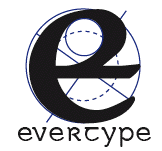Counting preservation in West Virginia
While it would be nice if fortune went more hand-in-hand with fame, fame sometimes brings one a nice surprise. I often get inquiries from people looking into languages and writing systems, and sometimes those queries are really very interesting. Last night, I received a very nice request from a charming person from West Virginia whose initials are V.E.L., who was born in 1927ː
It turns out that the numbers one to ten in Cherokee really don't have anything to do with the list which V.E.L. gave.
So it's not Cherokee.
I think there's a good chance it's Welsh. At least some of it is. It's five and the shift after fifteen that clinch it for me.
Good evening to you, sir. This may sound very stupid to you but I'm willing to take that chance to ask you a question; I'm 80 years old and, as a young kid, I remember my Mother telling me and my siblings that she could count to 20 in Cherokee. We, of course, memorized that stuff and still have most of it stored in the old noggin. It went like this; teen, tain, tether, fether, fimps, matha, latha, catha, doublo, beaudix, teendix, taindix, tetherdix, fetherdix, bumpus, teenbump, tainbump, tetherbump, fetherbump, jenkus. (1 to 20)
It turns out that the numbers one to ten in Cherokee really don't have anything to do with the list which V.E.L. gave.
| 1 | sa'wu |
| 2 | ta'li' |
| 3 | tsoː'i' |
| 4 | nvgi' |
| 5 | hiːsgi' |
| 6 | su'dali' |
| 7 | galoquoː'gi' |
| 8 | tsuneːla' |
| 9 | so'neːla' |
| 10 | sgo'hi' |
So it's not Cherokee.
Is there any possibility that there was any merit at all in this, or was she simply kidding with us? I have been under the impression that dix was possibly French for 10 and that, coupled with teen for 11, makes a little bit of sense to me. The spelling is just my idea of how the words sounded and I am not a linguist at all. If you can find time to respond, it will greatly appreciated.
I think there's a good chance it's Welsh. At least some of it is. It's five and the shift after fifteen that clinch it for me.
| № | W.Va. | IPA | Welsh | IPA |
| 1 | teen | tiːn | un | iːn |
| 2 | tain | tɑɪn | dau | dɑɪ |
| 3 | tether | ˈtɛðər | tri | triː |
| 4 | fether | ˈfɛðər | pedwar | ˈpɛdwɑr |
| 5 | fimps | fɪmps | pemp | pɛmp |
| 6 | matha | ˈmɑθə | chwech | xwɛx |
| 7 | latha | ˈlɑθə | saith | sɑɪθ |
| 8 | catha | ˈkɑθə | wyth | wɪθ |
| 9 | doublo | ˈduːblo | naw | nɑʊ |
| 10 | beaudix | ˈboːdɪks | deg | deg |
| 11 | teendix | ˈtiːndɪks | un ar ddeg | iːn ɑr ðeg |
| 12 | taindix | ˈtɑɪndɪks | deuddeg | deɪðeg |
| 13 | tetherdix | ˈtɛðərdɪks | tri ar ddeg | triː ɑr ðeg |
| 14 | fetherdix | ˈfɛðərdɪks | pedwar ar ddeg | ˈpɛdwɑr ɑr ðeg |
| 15 | bumpus | ˈbʌmpəs | pymtheg | ˈpɪmθeg |
| 16 | teenbump | ˈtiːnbʌmp | un ar bymtheg | iːn ɑr ˈbɪmθeg |
| 17 | tainbump | ˈtɑɪnbʌmp | dau ar bymtheg | dɑɪ ɑr ˈbɪmθeg |
| 18 | tetherbump | ˈtɛðərbʌmp | deunaw | ˈdeɪnɑʊ |
| 19 | fetherbump | ˈfɛðərbʌmp | pedwar ar bymtheg | ˈpɛdwɑr ɑr ˈbɪmθeg |
| 20 | jenkus | ˈdʒɛŋkəs | ugain | ˈigɑɪn |


7 Comments:
Very interesting! Sounds to me as if these are a form of the Cumbria Sheep Counting Numbers which some people optimistically believe are a relic of the Brythonic Celtic language spoken in Northern England and southern Lowland Scotland a thousand years ago, and which others, more cautiously, think are corruptions of Welsh numbers introduced into the region by Welsh shepherds.
It would be interesting to know where your correspondent's mother's family originally came from.
Is'nt it Cumbrian? See http://en.wikipedia.org/wiki/Cumbrian#Cumbrian_numbers
Thanks to both of you. I hadn't heard of the Cumbrian numbers before.
My informant says that his mother's name is Ellison. From the 1881 UK census: http://www.nationaltrustnames.org.uk/Map.aspx?name=ELLISON&year=1881&altyear=1998&country=GB&type=name
Wow, someone else knows how to count with teen, tain,....My grandmother from eastern Kentucky taught me how, and I'm the only grandchild to still have it memorized. Just curious to see if anyone else knew this jingle, I googled it, and your blog appeared.
--Iosifina
The way it "jingles" is immediately recognisable as a one of those shepherd's counting systems (which are not just Cumbrian, see the fuller coverage at http://en.wikipedia.org/wiki/Yan_Tan_Tethera). Permit me a little correction on the Welsh: it's pump [pɪmp] not pemp. In your transcriptions, wyth is [uiθ] not [wɪθ] and pymtheg (etc) should [ˈpəmθeg] not [ˈpɪmθeg].
It's fascinating to think of these counting systems travelling as far as places like West Virginia, and still being remembered to this day (if only as a curiosity).
Post a Comment
Links to this post:
Create a Link
<< Home